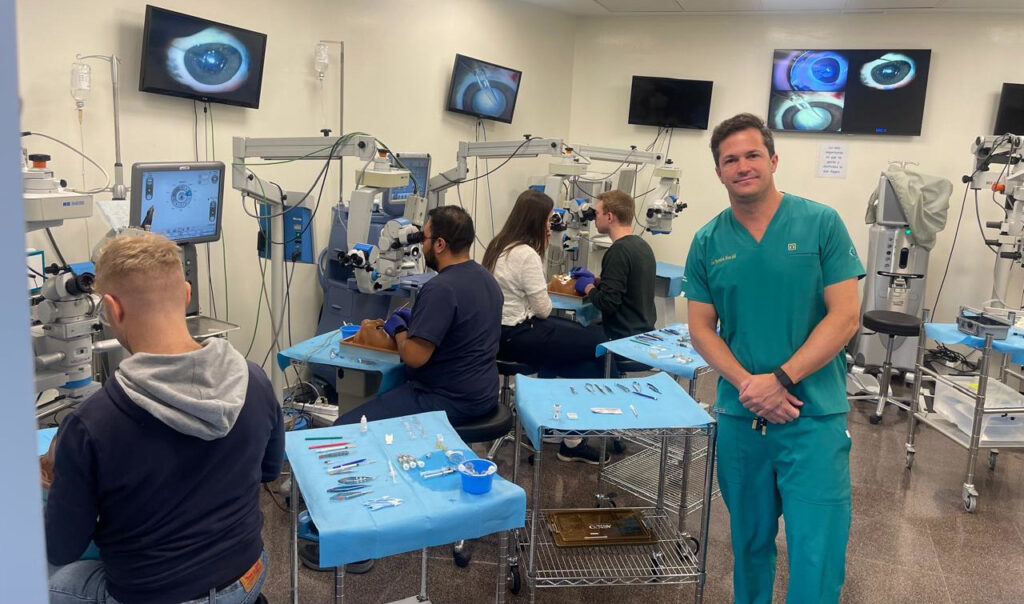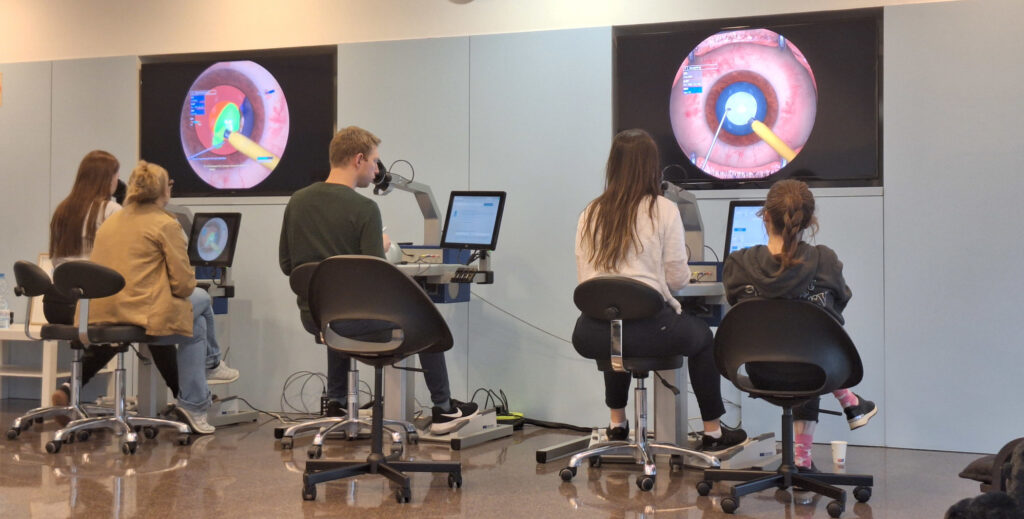Cataract Surgery Training
Once the surgeon knows the basics, it is time to master the theoretical aspects of the phaco procedure and develop practical skills. While PowerPoints, videos, and books provide valuable knowledge, nothing compares to effective mentoring and hands-on experience. The first step is for the surgeon to plan their path toward becoming self-sufficient in the operating room, considering all possible scenarios they may encounter.
After reviewing the available training options, it is natural for the surgeon to raise their expectations—not only aiming to become skillful but also to develop the mindset and self-assurance needed to enjoy the procedure with confidence.
The Oftalmo University Cataract Surgery Training Program
Following our experience with hundreds of eye surgeons successfully trained we have designed a tailored path for the ophthalmologist:
Phase 1: Online theoretical fundamentals
The first step and beginning of the mentored journey. This is how most ophthalmologists become completely familiarized at a theoretical level with surgical techniques, instruments, and phaco device configurations. It offers exclusive, structured, and interactive online content designed for active learning. With a personalized mentor to guide you, you’ll have access to premium materials that ensure a comprehensive learning experience. This exclusive content is specifically designed to prepare you for Phase 2, equipping you with the knowledge and skills needed for the next stage of your journey.
Phase 2: Hands on training with Simulation & Wet/Dry Lab
Our goal is to support you step by step so that you can perform cataract surgeries with complete confidence and safety—no matter what stage you’re currently at. That is why we take advantage of all the means available so you can get the most comprehensive training worldwide.
Wet/Dry Lab: Our Training Centers are equipped with the best quality of artificial eyes (Bioniko Models) and latest technology in: Microscopes, Phaco Machines, consumables & IOLs.

Training with Surgery Simulation: Providing an immersive experience that is increasingly becoming the optimal method for acquiring skills in both basic and complex scenarios we have the best simulators with the latest software
upgrades: Haag-Streit EyeSi ® Simulators.
Through this phase, you will save time with our efficient methodology designed to optimize your learning process, ensure safety with evidence-based training for the best surgical outcomes, and benefit from an innovative approach that leverages cutting-edge technology and simulation methods.

Phase 3: Mentored Surgeries with real patients
After a combination of the previous training methods, performing surgeries on real patients is the next natural step. Mentorship in the operating room during the first cases is crucial. Typically, completing between 20 and 40 mentored surgeries marks the final stage in gaining the confidence and competence needed for independent practice.
In our comprehensive cataract program, we encompass all available training options and bundle them with our proven success methodology, which also includes psychological training, nutritional guidelines, and mental focus strategies.
By offering a tailored experience, we enhance the surgeon’s learning curve, no matter their professional stage, achieving a 100% impact.
If you have any kind of interest please fill the following form and we will provide you with the information you need.
